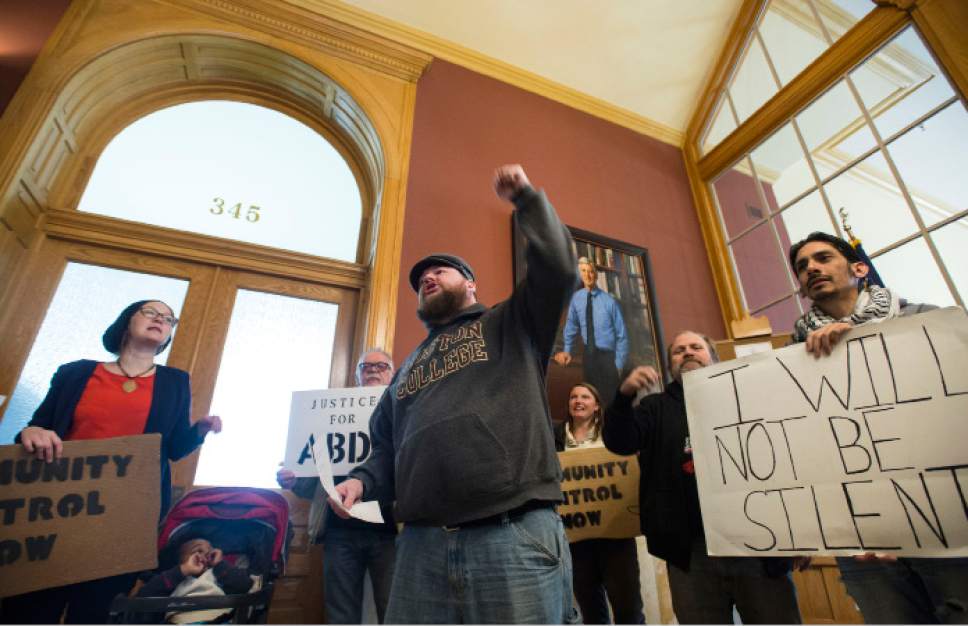This is an archived article that was published on sltrib.com in 2017, and information in the article may be outdated. It is provided only for personal research purposes and may not be reprinted.
It is time to move past the point where video footage of an alleged crime, or of an alleged act of police brutality, is considered to be a some kind of weird occurrence.
It's not just police bodycams any more. It's security cameras in stores, street corners and transit stations. It's iPhoto and Facebook Live. So much of what happens in public is on tape or a hard drive somewhere that the public, and public officials, should consider it a default public record. Especially when the actions of government agencies — most often, the police — are what's been recorded.
For some, grasping that fact of modern life may be almost as difficult as hearing that Salt Lake County's chief prosecutor is objecting to proposed rules that would push for the release of Salt Lake City Police bodycam images in cases of officer-involved shootings, and that he is basing his argument on a concern for the constitutional rights of the accused.
That's generally not thought to be a D.A.'s top worry.
But District Attorney Sim Gill and Salt Lake City Mayor Jackie Biskupski are at odds over the issue because, Gill says, the mayor's draft rules for her city's police department don't give enough deference to the due process rights of those involved.
Knowing Gill's sense of justice, there is no reason to doubt the man when he says he's worried about body cam or other video footage coming into the public domain and prejudicing the public's view, or the police investigation, of a case.
What Gill misses is that not everyone will accept that keeping such video under wraps is in the interest of justice. As frequent demonstrations at City Hall have shown, the default assumption of many is that the only reason to keep such images sealed is to cover up police wrong-doing. Which, under future district attorneys, might very well be the case.
Gill is worried that a few seconds of wobbly video, once out there, might drive the public to form an opinion for or against a criminal suspect or a police officer. That could make it difficult to empanel an unbiased jury, or might create an opening for an appeal of anyone convicted.
But that's the world he, and we, now live in. It is up to prosecutors, defense attorneys, judges, juries, the press and the general public not to allow hard and fast opinions to be formed based on brief, unfocused video images that, at their best, provide only a part of the truth.
Biskupski's draft policy would release such videos no more than six months after an officer-involved shooting — sooner if no public agency objects. Even that may seem unduly hesitant. But it moves toward transparency, and that's the right way to go.



